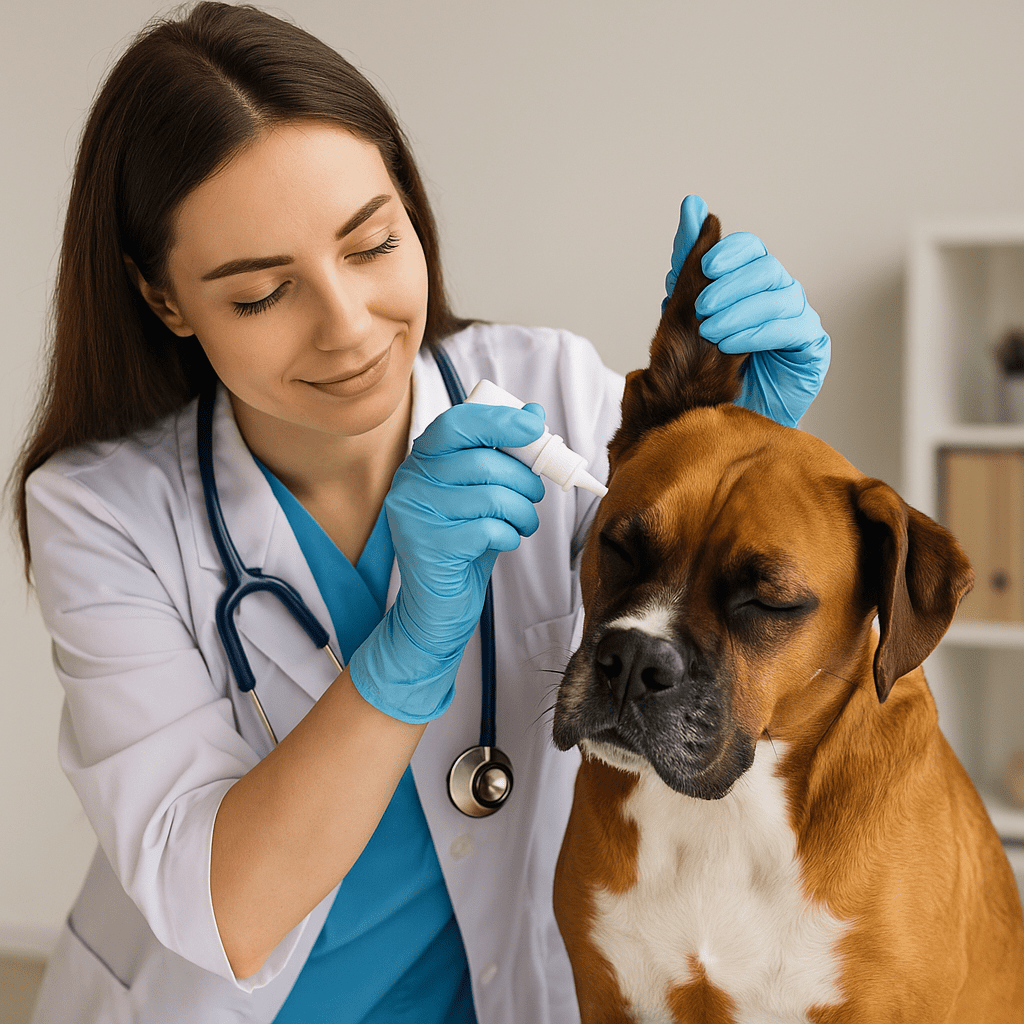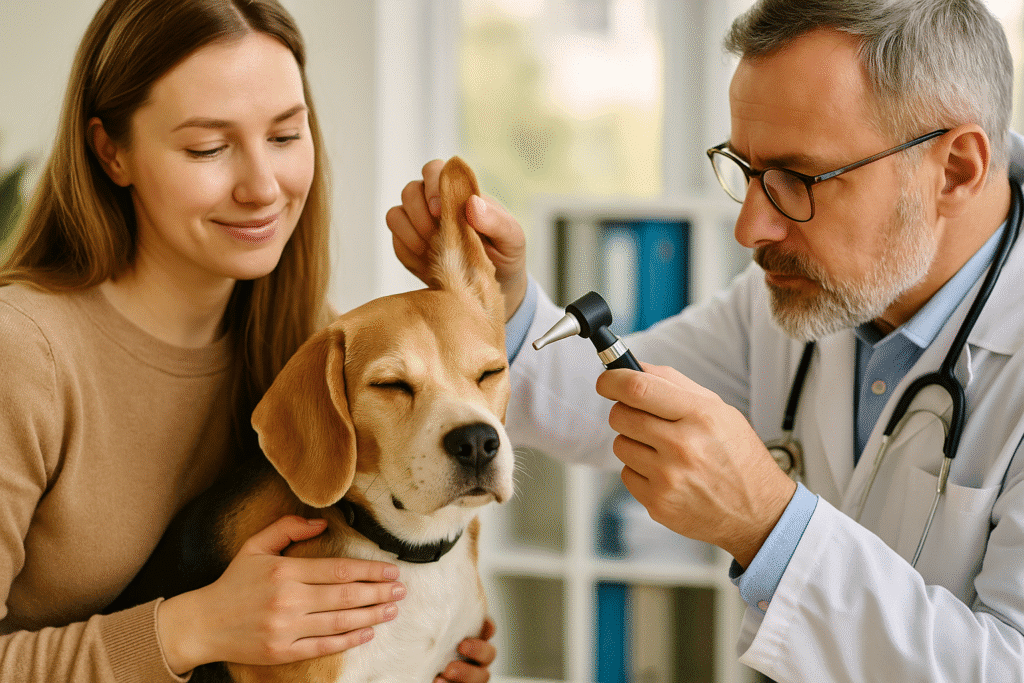This dog ear infection treatment guide explains everything dog owners need to know about ear health. Learn the common causes, early symptoms, effective treatment options, and proven prevention methods to protect your pup from painful ear infections and ensure long-term ear health.
Introduction
The dog ear infection treatment guide is designed for pet owners who want to keep their dog’s ears healthy and infection-free. Ear infections are one of the most common health issues in dogs, often leading to discomfort, head shaking, and even hearing loss if untreated. Understanding the causes, recognizing symptoms early, and applying proper treatment are key to your dog’s well-being.

What is a Dog Ear Infection?
A dog ear infection, also known as otitis externa, occurs when bacteria, yeast, or parasites invade the ear canal. Some infections may also result from underlying allergies or hormonal imbalances. While treatable, recurrent infections can indicate chronic conditions that require veterinary care.
Common Causes of Ear Infections
- Allergies: Food and environmental allergies often cause chronic ear inflammation.
- Moisture: Dogs that swim frequently are prone to “swimmer’s ear.”
- Bacteria & Yeast: Overgrowth due to poor hygiene or underlying health issues.
- Ear Mites: Particularly common in puppies and untreated cases.
- Foreign Objects: Grass seeds, dirt, or debris lodged in the ear canal.
(Outbound link: For more detailed causes, see VCA Hospitals: Dog Ear Infections)
Symptoms of Ear Infections in Dogs
Recognizing symptoms early can prevent complications. Look for:
- Frequent head shaking or ear scratching
- Redness or swelling in the ear canal
- Unpleasant odor from the ears
- Discharge that may be yellow, brown, or bloody
- Sensitivity when ears are touched
- Loss of balance or hearing in severe cases
Diagnosis of Dog Ear Infections
A veterinarian will examine the ear canal with an otoscope to identify infection. Swab samples may be taken to determine whether bacteria, yeast, or parasites are present. Accurate diagnosis is essential for effective treatment.

Treatment Options for Dog Ear Infections
1. Veterinary Medications
Treatment often includes prescription ear drops containing antibiotics, antifungals, or anti-inflammatory agents. Severe cases may require oral medications or even surgical intervention in chronic infections.
2. Home Care (Vet-Approved)
For mild infections, vets may recommend ear cleaning with vet-approved solutions. Never use household products like vinegar or alcohol, as they can irritate sensitive tissues.
3. Managing Underlying Conditions
If allergies or hormonal issues are the root cause, long-term management plans will be necessary. Dietary changes, allergy medications, or immunotherapy may be recommended.
(Outbound link: Learn more about treatment options at PetMD: Dog Ear Infections)
Prevention of Dog Ear Infections
- Regular Ear Cleaning: Clean ears weekly using vet-recommended solutions.
- Dry Ears After Swimming: Gently dry ears with a soft cloth after swimming or bathing.
- Routine Vet Visits: Early check-ups detect issues before they become severe.
- Balanced Diet: High-quality diets reduce allergy-related ear problems.
- Monitor Allergies: Identify and avoid environmental or food triggers.
Living with a Dog Prone to Ear Infections
Some breeds, such as Cocker Spaniels, Labradors, and Bulldogs, are more susceptible due to their ear structure. For these dogs, routine care and monitoring are especially important. With the right preventive measures, your dog can live comfortably without frequent infections.
Related Health Topics
For more skin and allergy-related care, check out our guide on Dog Atopic Dermatitis: Causes, Symptoms & Complete Treatment Guide.

Frequently Asked Questions (FAQ)
- Can I treat a dog ear infection at home?
Only under veterinary guidance. Using over-the-counter products without diagnosis can worsen the condition. - How do I know if my dog’s ear infection is serious?
If symptoms persist for more than a few days or worsen, consult a veterinarian immediately. - Are ear infections contagious between dogs?
Most bacterial and yeast infections are not contagious, but ear mites can spread between pets. - How often should I clean my dog’s ears?
Weekly cleanings are recommended for dogs prone to infections. Less frequent cleaning may suffice for others. - What breeds are most at risk?
Dogs with floppy ears or narrow ear canals, such as Cocker Spaniels, Golden Retrievers, and Bulldogs.
Conclusion
This dog ear infection treatment guide provides essential knowledge about causes, symptoms, and preventive strategies. With early detection, proper treatment, and consistent preventive care, you can protect your dog from painful infections and ensure long-term ear health.
Call to Action
Want to learn more about dog health? Explore our complete dog health guide here.

